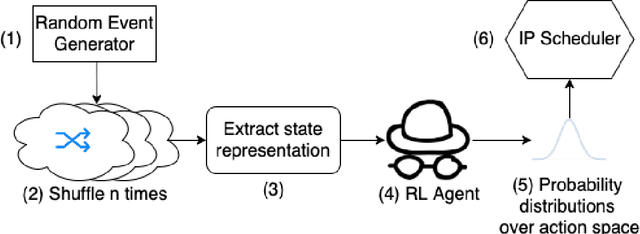Christopher Chin
NICE: Robust Scheduling through Reinforcement Learning-Guided Integer Programming
Sep 24, 2021



Abstract:Integer programs provide a powerful abstraction for representing a wide range of real-world scheduling problems. Despite their ability to model general scheduling problems, solving large-scale integer programs (IP) remains a computational challenge in practice. The incorporation of more complex objectives such as robustness to disruptions further exacerbates the computational challenge. We present NICE (Neural network IP Coefficient Extraction), a novel technique that combines reinforcement learning and integer programming to tackle the problem of robust scheduling. More specifically, NICE uses reinforcement learning to approximately represent complex objectives in an integer programming formulation. We use NICE to determine assignments of pilots to a flight crew schedule so as to reduce the impact of disruptions. We compare NICE with (1) a baseline integer programming formulation that produces a feasible crew schedule, and (2) a robust integer programming formulation that explicitly tries to minimize the impact of disruptions. Our experiments show that, across a variety of scenarios, NICE produces schedules resulting in 33\% to 48\% fewer disruptions than the baseline formulation. Moreover, in more severely constrained scheduling scenarios in which the robust integer program fails to produce a schedule within 90 minutes, NICE is able to build robust schedules in less than 2 seconds on average.
 Add to Chrome
Add to Chrome Add to Firefox
Add to Firefox Add to Edge
Add to Edge